household chemical problem waste
Do you have household chemicals at home and don’t know what to do with them?
You may not know it, but around your home, shed or garage you could be collecting unwanted household chemicals or problem waste such as paints, batteries, gas bottles, fluorescent globes and tubes and smoke detectors.
These items cannot go into the general recycling or kerbside garbage collection, however most of them can be recycled into new materials if disposed of correctly at a designated CleanOut event or Community Recycling Centre.
Community Recycling Centres
Common household problem wastes, including fluorescent lights, smoke detectors, paint, gas bottles, fire extinguishers, batteries and oils, can be taken to your local Community Recycling Centre.
These centres are open year-round and are free to use. Centres across Sydney are currently being established.
Household Chemical CleanOut
The safest way to dispose of potentially hazardous household chemicals is at a Household Chemical CleanOut event. These events are free services held across Sydney and NSW on specified dates.
If not disposed of safely, these items can cause harm to human health and the environment. You can take household quantities up to a max of 20 litres or 20 kilograms per item. A full list of accepted materials is below:
- Solvents and household cleaners
- Floor care products
- Ammonia-based cleaners
- Pesticides and herbicides
- Poisons
- Pool chemicals
- Hobby chemicals
- Motor fuels
- Fluorescent globes and tubes
- Acids and alkalis
- Smoke detectors
- Paint and paint related products
- Gas bottles
- Fire extinguishers
- Car and household batteries
- Motor oils and cooking oils
Business-related and commercial quantities of chemicals are not accepted. Please inquire with a commercial waste operator or visit www.businesrecycling.com.au for commercial waste disposal.

Household Chemical CleanOut Brochures in languages
Arabic
Chinese
Filipino
Greek
Hindi
Italian
Korean
Macedonian
Spanish
Vietnamese
Audio Podcasts in Vietnamese
Click on video to access interviews with our bilingual educators explaining what to do with your unwanted household chemicals.
A Vietnamese speaking educator – Minh Hoang – from the Ethnic Communities’ Council of NSW talks about the Household Chemical Clean Out and House Waste Programs to help families and individuals to reduce waste problems.
Audio Podcasts in Arabic
Click on video to access interviews with our bilingual educators explaining what to do with your unwanted household chemicals.
An Arabic speaking educator – Yasmine Mohamed – from the Ethnic Communities’ Council of NSW talks about the Household Chemical Clean Out and House Waste Programs to help families and individuals to reduce waste problems.
SBS Radio in Mandarin
This is Wenying Han, ECCNSW’s Mandarin educator that had run this interview with SBS radio/ Mandarin program.
Click below to listen to the Mandarin radio interview about the safe disposal of Household Chemicals.
SBS Mandarin is every day from 7am to 9am.
Click on the link below to access the SBS web site link to listen and read the talk at any time.
https://www.sbs.com.au/language/mandarin/zh-hans/audio/how-to-recycle-household-chemicals
How to Recycle Household Chemicals
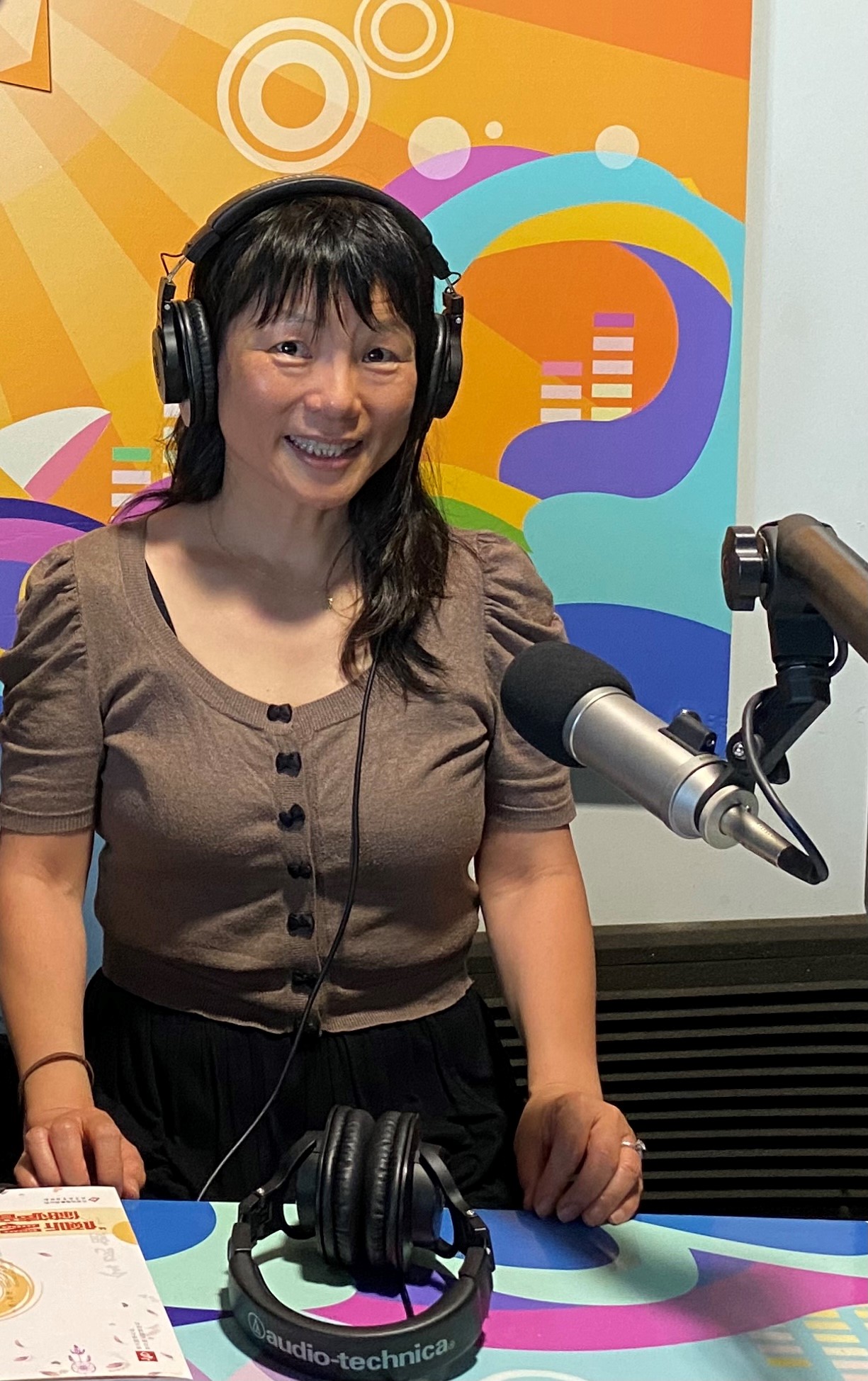
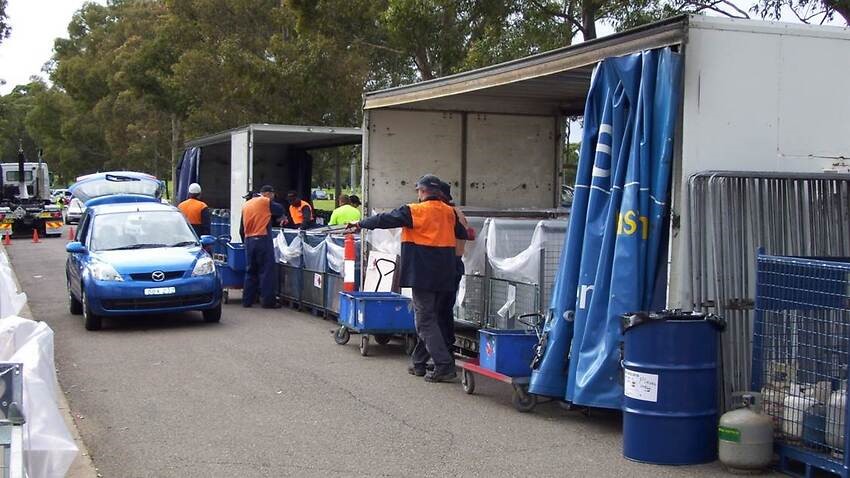
SBS Radio in Vietnamese
How to safely dispose of household chemicals and contribute to the growth of the Australian economy?
This topic was discussed during the Vietnamese Household Chemical interview on SBS website.
CLICK HERE to access the Radio Interview on SBS.
The Chemical Collection Day program and Community Recycling Centre helps residents remove household chemicals safely, helps them to be recycled and contributes to a healthy environment.
The interview was on air last Monday 11/11/2021.
2OR Chinese Community Radio in Mandarin
The first episode on Household Waste was broadcasted on 2OR Chinese Community Radio Station in January 2021.
Some of the topics that were discussed are:
1. Clean Out vs Council half yearly kerbside collection.
2. Solvents and household cleaners.
3. Woolworths and Coles have stopped giving out plastic bags.
4. Hard plastic recycling VS soft plastic recycling.
5. Where to dispose of unwanted medicine, used printer ink or ballpoint pen?
2OR Chinese Community Radio
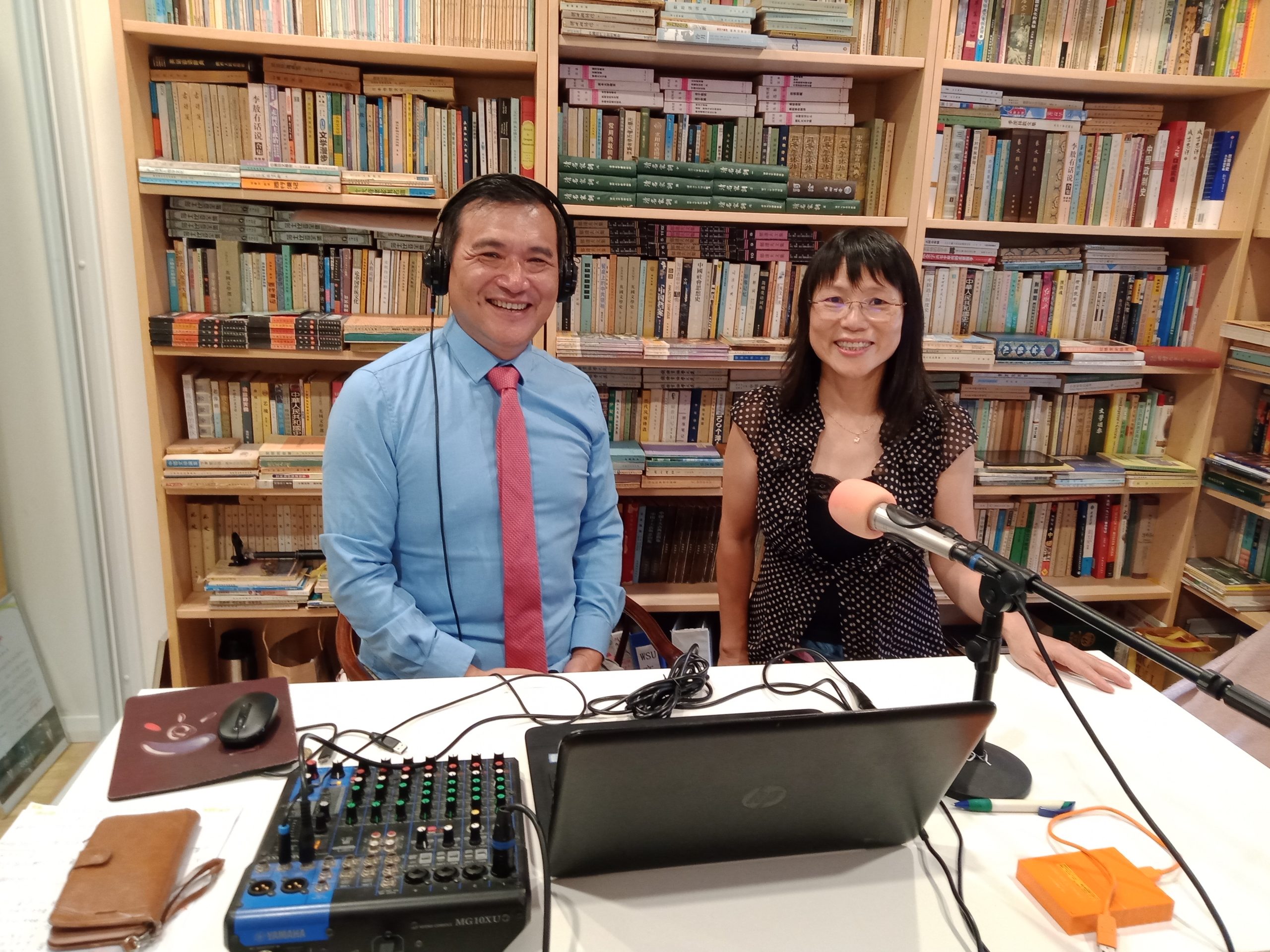
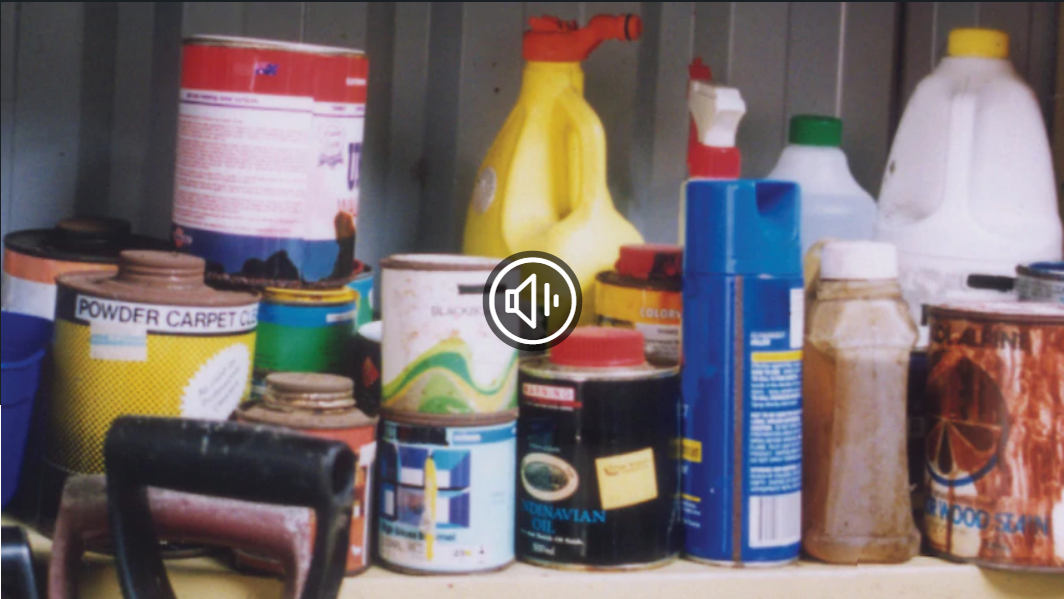
SBS Radio in Arabic
The NSW Environmental Protection Agency launched a educational campaign for the various communities, including the Arab community, with the aim of raising awareness among communities and introducing the dangers of chemical waste.
Yasmine Mohamed, an environmental guide and participating in this campaign, said that there are several useful and safe ways to store, recycle and also dispose of chemical waste. This includes, for example, batteries, dye cans, and gas bottles.
CLICK HERE to access the Radio Interview on SBS.
SBS Radio in Tamil
Click on video to access interviews with our bilingual educators explaining what to do with your unwanted household chemicals.
Household Chemicals - SBS Radio in Tamil

SBS Radio Tamil – What’s the right way to store and dispose of household chemicals?
The NSW Environment Protection Authority (EPA) delivers two programs that address household problem waste, targeted at NSW householders: Community Recycling Centres (CRC) and Household Chemical CleanOut (HCC).
The programs aim to provide a safe way to dispose of problem wastes to improve resource recovery and minimise harm to the environment and human health. Renuka talks to Mani Ramasamy, (Bilingual Energy Assessor-Tamil, Ethnic Communities Council of NSW) about these programs.
CLICK HERE to access the Radio Interview on SBS.
Chemical Clean-Out Flyers in Languages
For more information, call the Environment Line on 131 555 or visit www.cleanout.com.au
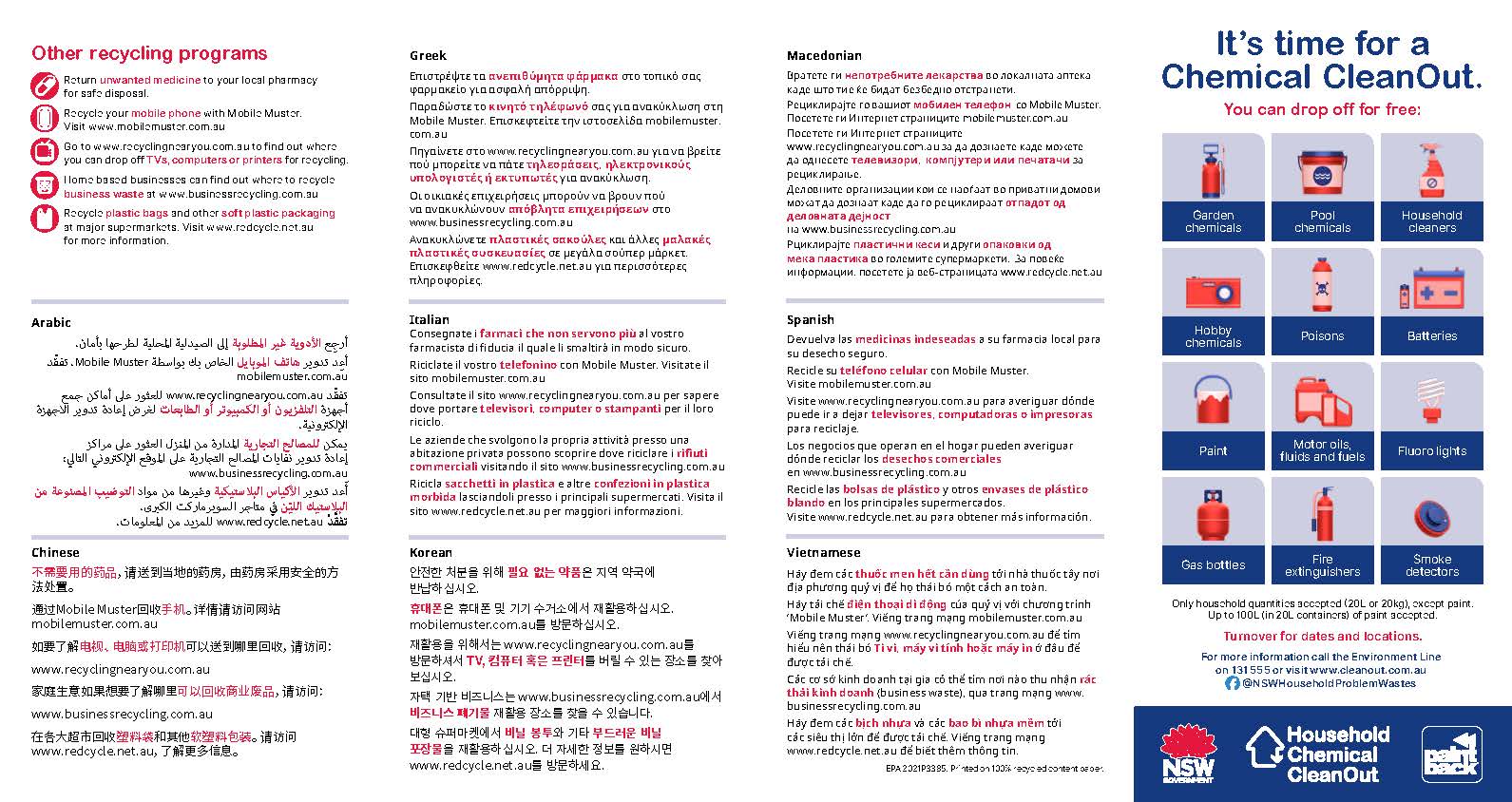
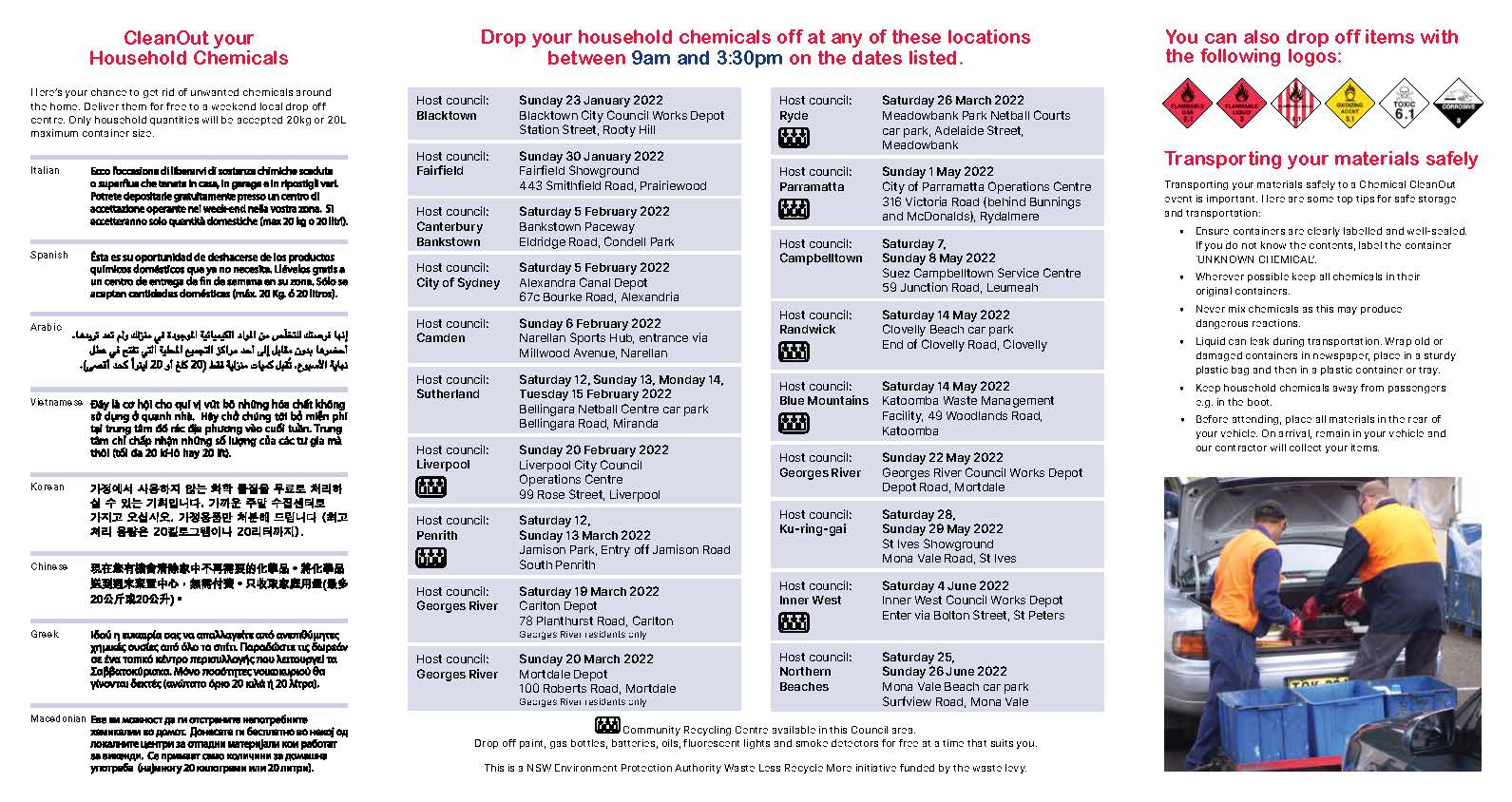
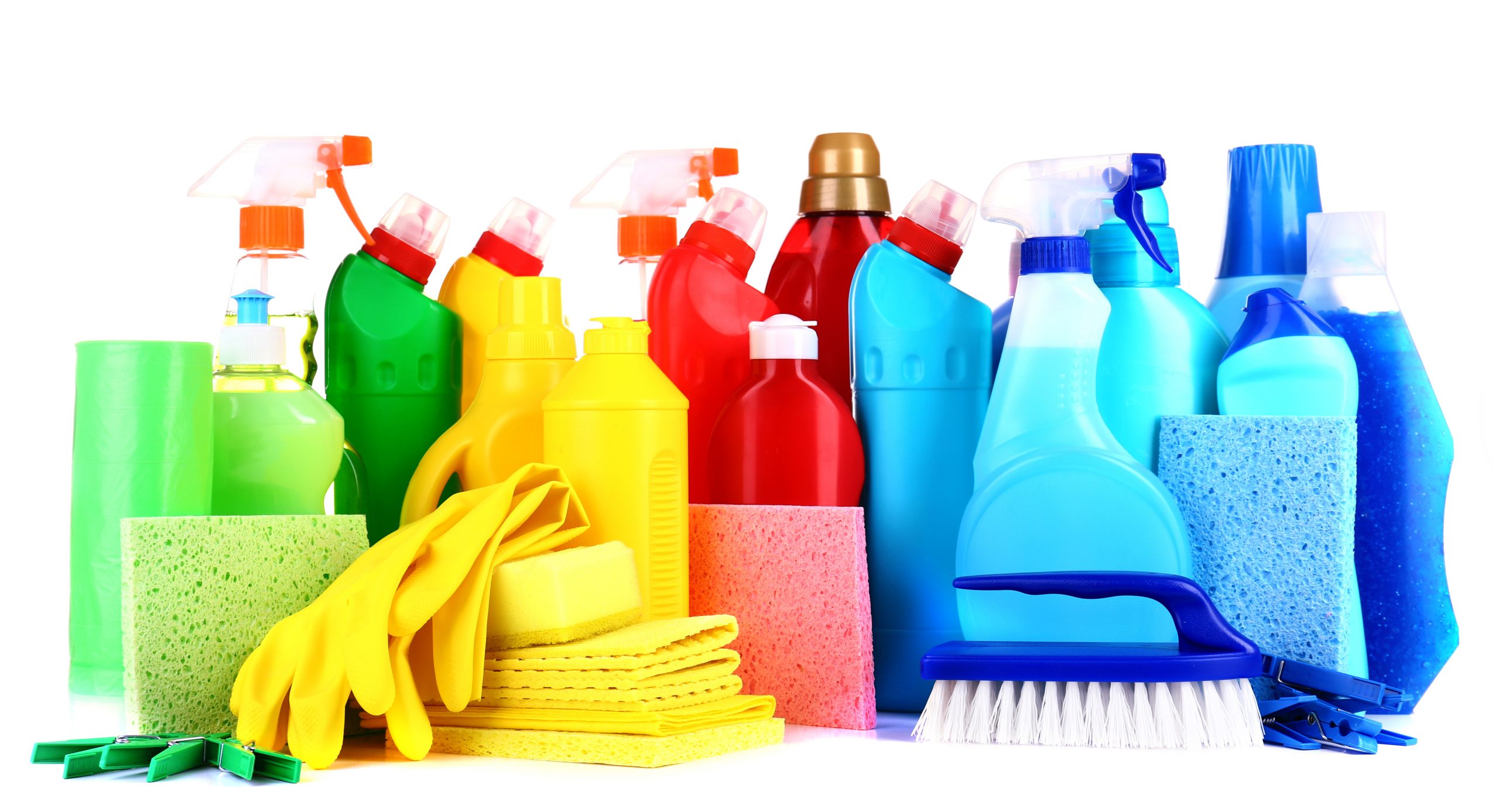
SBS Radio Arabic – The correct way to dispose of household chemicals wastes
Paint, batteries, garden spray poison and similar household chemical waste, take them to special centres and dispose of them safely to protect yourself your family, your community and the environment.
The Environmental Protection Authority, known as EPA, holds an annual campaign in cooperation with the Ethnic Communities Council known as ECC in NSW, to raise awareness of how to dispose of chemical waste in home.
In an interview with SBS Arabi24, environmental intellectual Yasmine Mohamed said that throwing chemical waste into regular garbage containers has negative repercussions.
CLICK HERE to access the Radio Interview on SBS.


